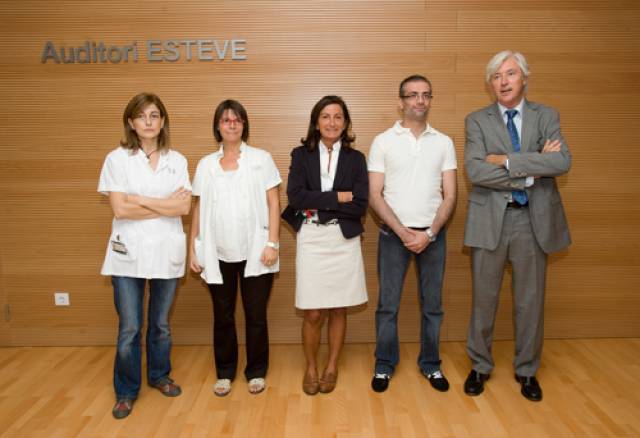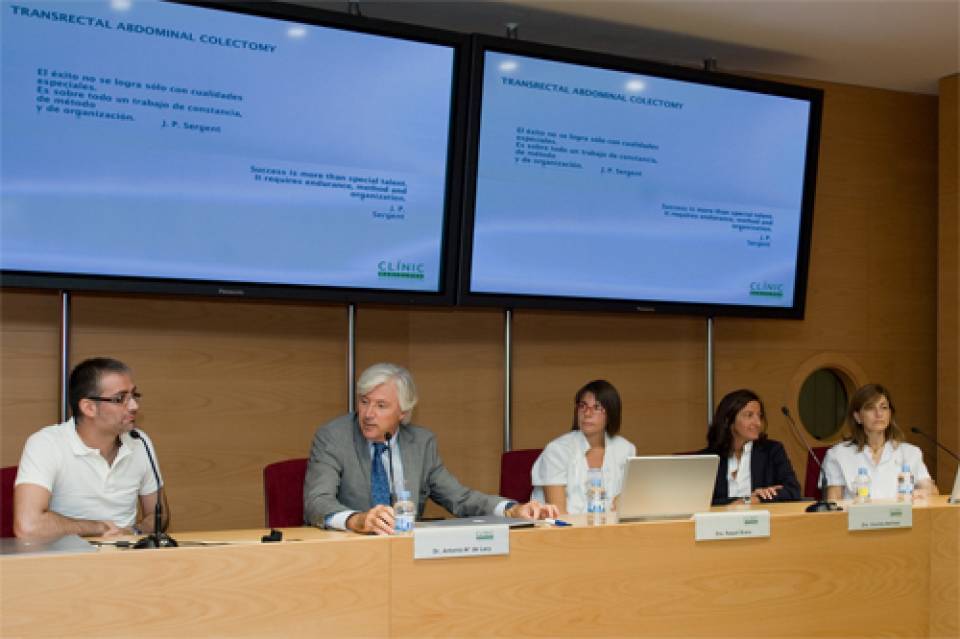
In the present case, the failure of immunosuppressive drug therapy (although its cause is unknown, many hypotheses suggest an autoimmune origin of ulcerative colitis), motivated the surgery for total removal of the affected organ. "When the surgery is justified by the immunosuppressive treatment-resistant disease, total colectomy and subsequent reconstruction of the organ are presented as the only solution", said Dr. de Lacy. This patient was the perfect candidate for less invasive surgery because of his malnutrition, anemia and frequent intake of steroid drugs.
During the operation all surgical instruments were introduced through the anus to prevent painful abdominal incisions. This new technique has been developed to achieve better results than laparoscopic surgery, and even than NOTES surgery, minimally invasive techniques that guarantee many advantages: reduced pain, shorter hospital stay and better oncologic results. MANOS technique was performed through three laparoscopic ports in the abdomen (12, 3 and 5mm each). The larger diameter was used for subsequent ileostomy (a surgical opening in the abdominal wall to take out the intestinal waste when the colon or rectum do not work properly). Thanks to the joint efforts of this team of experts, the surgery has gone a step further and now it is possible to operate successfully chronic inflammatory diseases without scarring, unlike the aforementioned laparoscopy, whose scars are reduced to 4 or 5 minimal incisions.
"The procedure was done because it was identified as the only possible solution", said Dr. de Lacy. Never before had this operation been performed through the rectum, but the IDIBAPS – Hospital Clínic’s team has proven it to be a safe and extrapolated for future cases. "The result, after four hours of intervention, has been successful and confirmed the new technique as a reliable MANOS surgical tool", he concludes.


